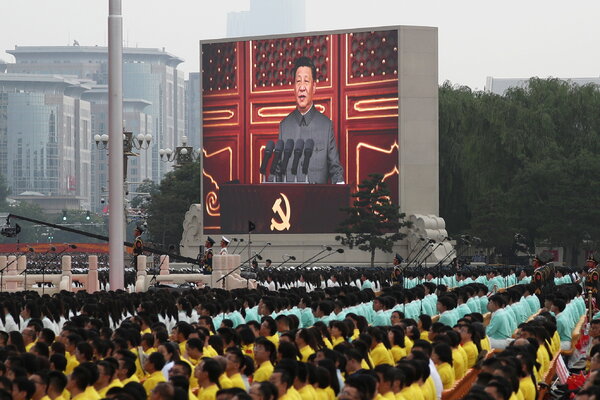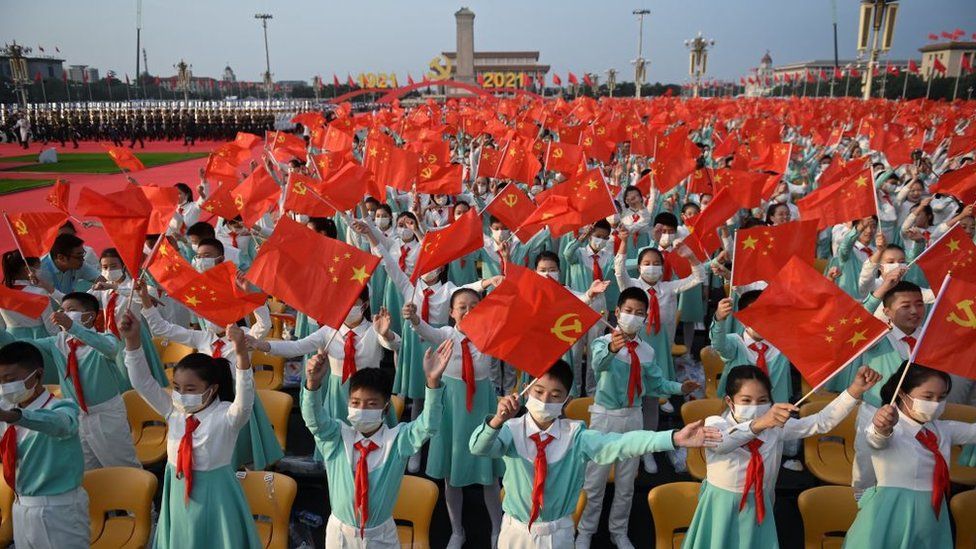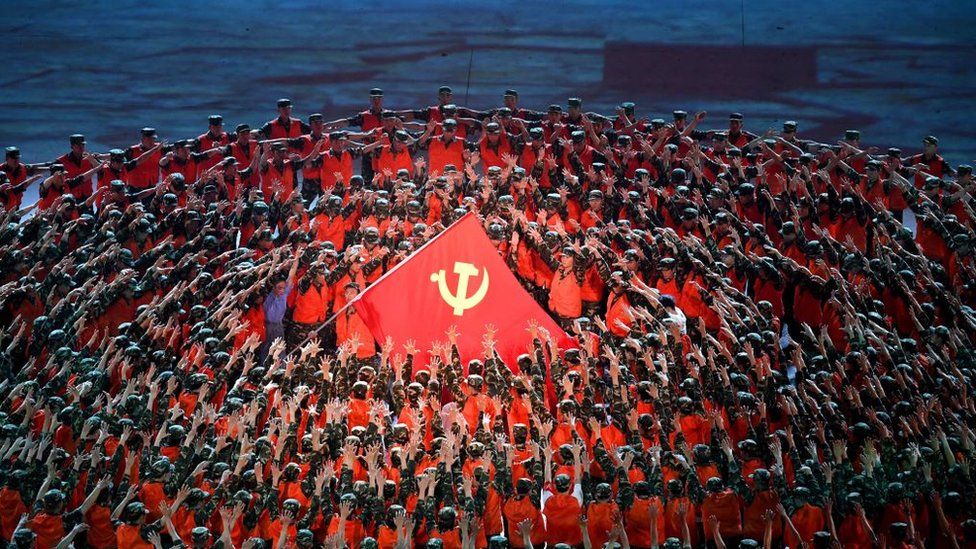Exactly 100 years ago on this very first day of July, a political party under the leadership of Mao Zedong came into existence in Shanghai. Yes! While the world is still struggling to contain the havoc caused due to the COVID-19 pandemic, China in a huge ceremony is celebrating the 100th anniversary of the founding of the Communist Party of China.
A lot has been changed since 1921, the year when China’s present leading political party was formed. The party has grown immensely since then and today it has about 95.148 million members. Started off with just 50 members in 1921 to 95 million people today, the party has come a long way. In fact, it has been reported that the party grew 20x more today than it was in 1949, the time when the People’s Republic of China was formed.
A brief history of Chinese Communist Party:
1920s:
The founding of the Communist Party of China (CCP) took place in the early 1920s with the objective and demand of the development of modern Chinese society and revolution. The CCP was founded in the year 1921 with the help of the Communist Party of the Soviet Union. Inspired by the Russian revolution, the party is believed to be built on the principles of Marxism-Leninism.
With the aid of the Soviet Union and the Communist Party that was formed in 1921, the Nationalist Party or Kuomintang (KMT) formed the Government of the Republic of China in Guangzhou on July 1, 1925. After the death of Sun Yat-sen in 1925, his favourite student, Chiang Kai-shek was appointed as the successor to the country.
It was then in 1927 when the Civil war broke in China between the Nationalists and the Communists. In effort to gain power, Chiang Kai-shek launched a further campaign from 1934-1936 and started the Long March which made CCP give up their Communist headquarters in southwest China.
1949 (End of Civil War): The Civil War ended in the year 1949, and with it, the Chinese Communist Party established the People’s Republic of China and overthrew the nationalist government which led the government of the Republic of China (the Kuomintang party, Chinese Nationalist Party) fled to the island of Taiwan.
1960s-1970s: The CCP was facing a significant ideological difference from the Communist Party of the Soviet Union.
With Mao’s death in 1976, the CCP Chairman Hua Guofeng and Vice-Chairman Deng Xiaoping both wanted to get into power, but Deng came out to be the winner and became the leader of China in 1978. Later, Deng in corporation with Hu Yaobang and Zhao Zinyang embraced the reform and opening policy in China, side-lining Mao’s political approaches. Interestingly, Deng’s policies are in effect even today in China.
Surprisingly, during Deng Xiaoping’s rule, China and the US under the administration of Jimmy Carter successfully built official ties. In fact, in 1979, Deng became China’s first-ever communist leader to visit the US.
Early 1990s: Jiang Zemin came to power following the Tiananmen Square protests as a compromise candidate.
1997: After the compression of the Tiananmen Square protests in 1989, Deng’s vision on economics was carried forward and the socialist concept of market economy commenced in the country. In 1997, Deng’s beliefs were also included in the CCP constitution.
2002: Hu Jintao became the successor of Jiang Zemin and his pollical approach was highly different from the existing leaders of the People’s Republic of China. Unlike other leaders, Jintao believed in collective leadership and was against one-person rule.
2012: The year, which marked the beginning of the new era in the history of China. After Hu Jintao resigned from his post as CCP General Secretary and Chairman of the CMC in 2012, he was succeeded by Xi Jinping. With the second peaceful transition of power in CCP’s history, Xi launched a massive anti-corruption campaign to keep the party clean and loyal to his leadership.
2018: In 2018, China approved the removal of the two-term limit on the presidency, which allowed Xi Jinping to remain in power for life. Xi is the current President of the country and often remains in news for his diplomatic policies and domestic politics. It is believed that Xi follows the footsteps of Mao and Deng and has made the country build its military much stronger than ever before.
July 1 also marks 24th anniversary of Hong Kong’s return to China:
On July 1, China not only celebrates the anniversary of the formation of the Chinese Communist Party, but it also celebrates the handover of Hong Kong from British to Chinese rule on this very day. This year, with the celebration of the 100th year of the founding of China’s ruling CCP, China is also marking the 24th anniversary of Hong Kong’s return to Chinese control.
It is important to note that exactly a year ago, on June 30, 2020, the Chinese government imposed a sweeping national security law on Hong Kong and since then many of the city’s most prominent opposition politicians are under the arrest of the Chinese administration.
On 100th anniversary, Xi’s special speech:
On the occasion of this extraordinary event and celebrations, Xi Jinping took the stage to warn other countries to not to try to bully China. He also said that China will always firmly stand up against foreign pressure and will not accept the ‘sanctimonious preaching’ from anybody in the world.



